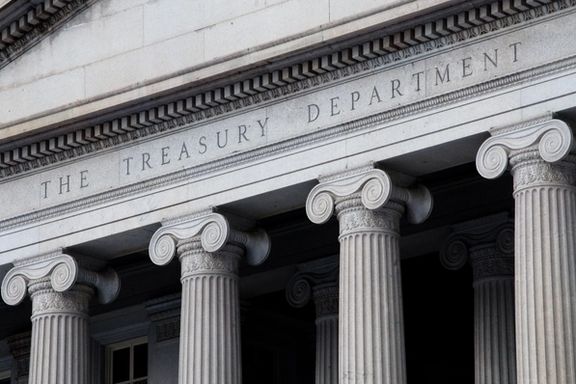Tehran Newspaper Claims Iran 'Freed' $4 Billion 'Without Negotiating'

After a claim Friday that $3.5 billion of Iran's frozen funds had been freed, an IRGC newspaper bumped the figure to $4 billion, as a sign of Tehran's victory.

After a claim Friday that $3.5 billion of Iran's frozen funds had been freed, an IRGC newspaper bumped the figure to $4 billion, as a sign of Tehran's victory.
Neither the CEO of government news agency IRNA who had made the initial claim, nor Javan newspaper affiliated with the Revolutionary Guard presented any evidence or quoted an official source to back-up their claims. There have been no foreign official or media reports indicating that the United States has agreed with release of Iranian frozen funds.
An editorial Saturday in Javan said that within 100 days of Raisi taking office, not only had $4 billion been freed "without much negotiation” but also the "capacity of Iran's nuclear program has been growing.”
The paper contrasted these events with the two-year negotiations leading to the 2015 nuclear deal, the JCPOA (Joint Comprehensive Plan of Action), and with the failure of previous president Hassan Rouhani to secure the release of Iranian funds frozen by third parties wary of punitive United States action under its ‘maximum pressure’ sanctions threatening anyone buying Iran’s oil or dealing with its financial sector.
In a dig at Rouhani, whose strategy of deepening economic ties with Europe was thwarted by ‘maximum pressure,’ Javan noted that “sometimes not being eager to negotiate, particularly with Westers powers, produces better results.”
In a tweet Friday the CEO of the government official news agency (IRNA), Ali Naderi, said $3.5 billion of Tehran's frozen funds had been released. Naderi did not say where the assets were frozen but claimed they could soon be used for “trade,” presumably implying they might pay for exports to Iran rather than be transferred as cash.
Javan added $500 million to this figure on the grounds, it said, that the United Kingdom had finally agreed to pay a four-decade-old debt of £400m ($535m) owed Iran for weapons bought in the 1970s but never delivered.
The newspaper linked the release of frozen funds and Britain honoring the debt to the resumption of Vienna talks at the end of November on reviving the JCPOA. The pavements would give “a different perspective to the Vienna process," it said.
Iran has assets frozen in several countries including South Korea and Japan, largely for past purchases of Iranian oil, as well as in Iraq, India, and China. It was reported this week that China imported on average 560,000 barrels per day(bpd) of Iranian oil from the beginning of August until the end of October, but other Asian customers stopped buying it under US pressure.
$50 billion frozen
The semi-official Iranian Students News Agency (ISNA) in a report Saturday said Iran's assets frozen abroad amounted to $50 billion, including $8 billion in South Korea, $3 billion in Japan, and $6 billion in Iraq.
The ISNA report said that suddenly injecting all these assets into the forex market would push the exchange rate for the dollar to 150,000 rials or less. Nonetheless, the rial fell by 1,900 to 285,300 against the US dollar in the unofficial market Thursday.
Iranian officials have repeatedly made claims of the looming release of frozen funds, from Iraq in March for instance, but have not subsequently confirmed the transfer of money.
Last week South Korea’s Yonhap news agency wrote after Korea's first vice minister for foreign affairs, Choi Jong-kun, talked by phone with the US special envoy for Iran, Robert Malley, that Seoul and Washington maintained communication over Iran, especially on Iranian assets locked in South Korean banks, which it put at $7 billion.